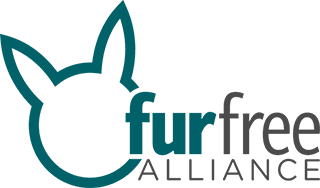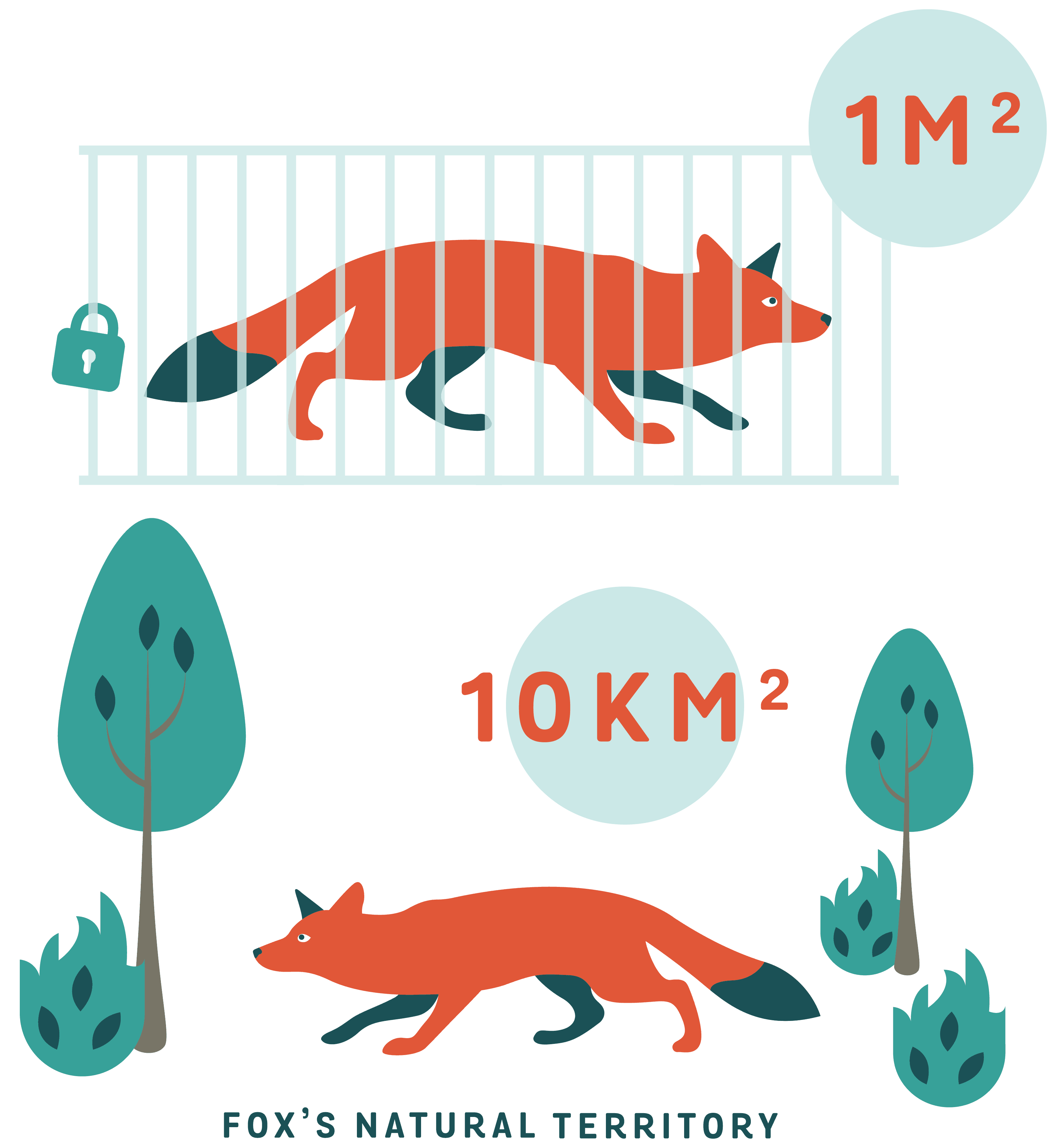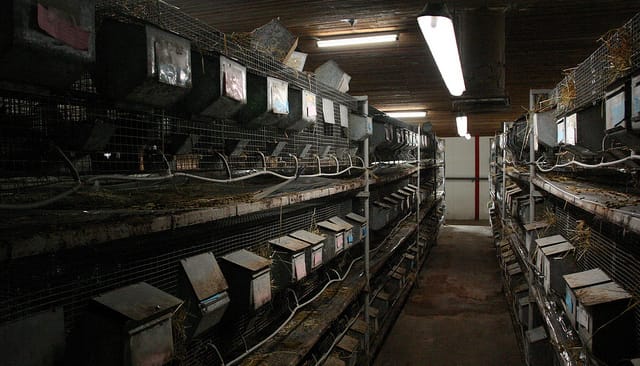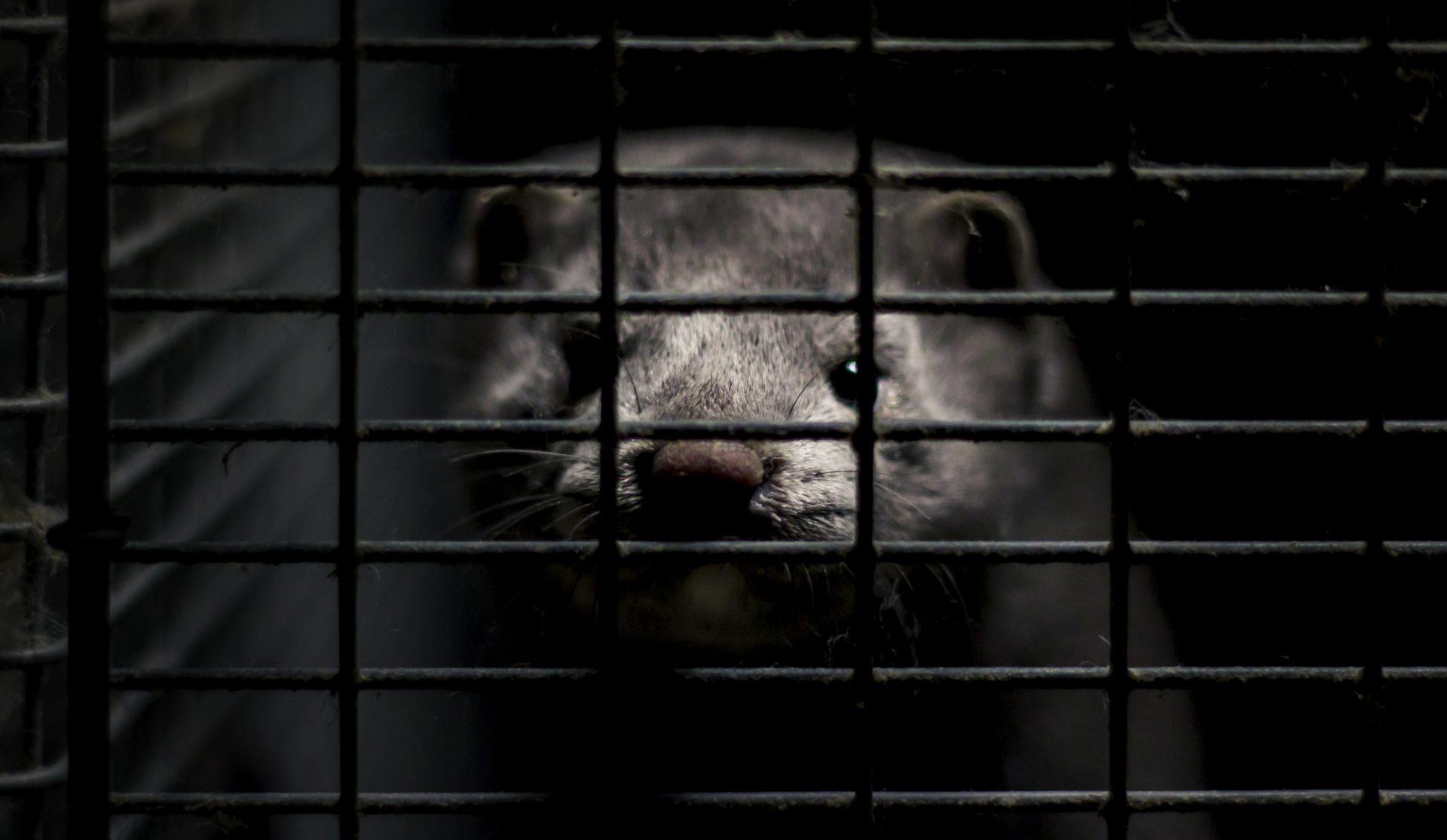Every year, around 100 million animals are raised and killed for their fur. Over 95% of fur sold globally, comes from farmed animals, such as mink, foxes, raccoon dogs, rabbits and chinchillas. On fur factory farms, animals spend their entire lives in cramped battery cages, deprived of the ability to engage in natural behaviours.
Keeping wide-ranging predatory animals in small cages causes severe animal welfare problems – such as self-mutilation and infected wounds.
Unlike other farmed species, animals bred for fur are essentially wild animals, which have undergone only a very limited domestication process. The active selection of animals on fur farms is mainly focused on fur quality and very little on tameness and adaptability to captive environments.
‘Fear of humans in the undomesticated animals used by the fur industry makes them fundamentally unsuitable for farming.’
The recommendations (2001) of the European Commission’s Scientific Committee on Animal Health and Animal Welfare (SCAHAW) state correspondingly:
‘In comparison with other farm animals, species farmed for their fur have been subjected to relatively little active selection except with respect to fur characteristics.’















